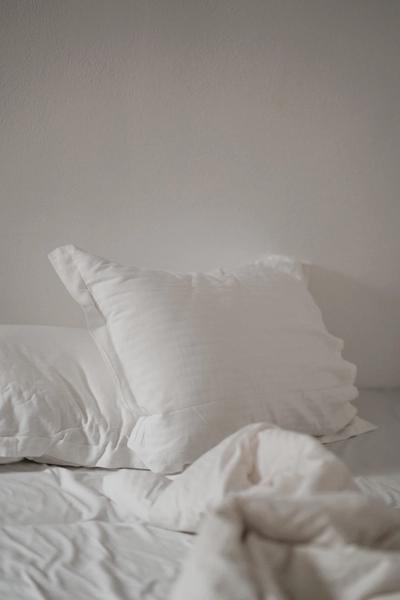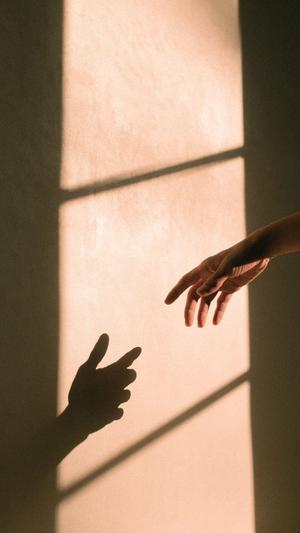We’re at the strangest place culturally when it comes to sleep. We’ve never been so obsessed: We buy smartwatches and Oura rings to track our sleep quality relentlessly every night; we pony up for the latest, greatest, smartest mattress; we choke down sleep tonics, CBD, THC (and yes, Ambien and Xanax) even “sleep ice cream”. We have made complex sleep shrines of our bedrooms, banishing our partners through “sleep divorces.” But here’s the million dollar question: are you really sleeping better? For 1 in 3 adults, the answer is no, and 1 in 10 are suffering from insomnia.
Humans have evolved to be highly sensitive to the 24-hour solar cycle and regular exposure to natural light and dark. Nearly all organisms, including humans, have internal daily clocks (hello circadian rhythms!) that control almost every biological system in our bodies, from our sleep-wake cycles and mood and performance patterns to our metabolic, immune and reproductive systems. We need the sun’s bright blue light in the day to be alert and active, and we need dark to kick-start our brain’s sleep mode and recovery.
Humans today, however, are taking in light and dark in unprecedentedly whacked-out ways. We blast our eyeballs after dusk with bright blue light from addictive screens, tricking our brains into thinking it’s still daytime: Netflix binging, checking social media until we pass out. Work increasingly doesn’t conform to solar time. While 20% of people are nightshift workers, reversing their day-night behavior, gig work is also soaring: Fifty percent of the world’s workforce works remotely at least half the week, part of the creeping “always-on” work culture that encourages us to further disconnect from natural cycles. Never before have human environments been such a “lightmare” (honestly wish I had coined this term).
The basic principles of sleep hygiene are simple to understand but sometimes hard to execute: Eliminate distractions (yeah, ok), optimize comfort (obviously), strive for consistency (not possible). It’s easy, just turn your bedroom into a sanctuary for sex and sleep…. Easy right? RIGHT? In reality most bedrooms are catchall walk-throughs where you do everything from have a fight with your partner to sorting laundry and even working if you work remotely. It may seem daunting to reserve your bedroom for sex and sleep only, but the effort will pay off in the form of deep, restful sleep.

“After dusk, when natural light disappears, we must minimize the negative impact of man-made light. In the day, we have evolved to be in the light, ideally sunlight, but if not, high-quality blue-enriched indoor light. Period. Given that most of our body systems express circadian rhythms, ensuring proper alignment of our internal circadian clocks, starting with the management of lighting, will have major impacts on human health.” - Dr. Steven Lockley, Associate Professor of Medicine at Harvard and one of the world’s top experts on circadian rhythms and sleep.
In order to create your sleep sanctuary, think about creating a room that appeals to your five senses. You don’t have to spend a lot of money, but try to create something that is beautiful to you (and your partner). That may be using certain colors that you like, certain textures of fabric, maybe having plants or soft lighting or anything that’s beautiful to your eye. I think candlelight is a magical way to transform a space. Have sound available, like playlists for sleep or for sex. Have scented candles or diffuse essential oils - something that brings your sense of smell to life.
You can guide your circadian clock to a certain extent by consistently providing your body with certain cues at the right times. These signals help train your body to recognize when you would like to sleep and when you would prefer to be awake. Just like how we create bath time to bedtime routines for our children, you need to create one for yourself.
Here’s our recipe for getting your body clock regulated:
- Exercise regularly
- Take sleep inducing supplements
- Limit naps, especially late in the day
- If possible, don’t eat after the sun goes down (this isn’t for everybody!)
- Limit overhead lighting, use soft lamps and candles as much as possible
- Turning off ALL screens at least one hour before bed
- Add extra pampering into your night time skin routine
- Take a bath (with Pursoma salt of course!)
- Reserve the bedroom for sleep and sex only
- Keep the bedroom cool and dark
- Set your alarm at the same time (and actually get up) every day
Everyone reacts differently to these cues, so you may need to experiment and see what works for you. Talk to your doctor if your sleep clock is still acting up after trying these sleep hygiene tips. A doctor can help pinpoint the source of any sleep problems and offer additional treatment options to help you sleep better.



